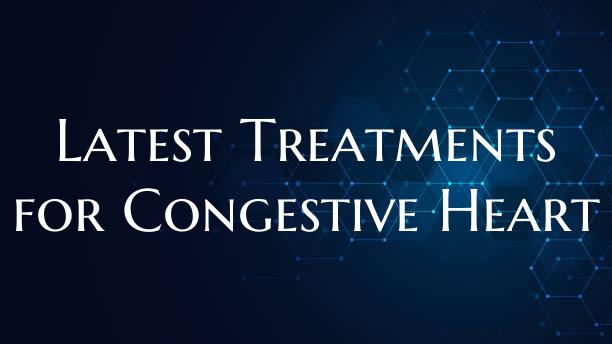
Latest Treatments for Congestive Heart
Congestive heart failure is a chronic condition where the heart is unable to pump blood effectively, leading to symptoms such as fatigue, shortness of breath, and swelling in the legs. The management of congestive heart failure has seen significant advancements in recent years, with the development of new treatments that aim to improve quality of life and decrease the risk of complications. Here are some of the latest treatments for congestive heart failure:
1. Sacubitril/Valsartan (Entresto): This is a combination drug that has been shown to reduce hospitalizations and deaths in patients with heart failure. It works by relaxing blood vessels and enhancing the excretion of salt and water, thereby reducing the strain on the heart.
2. SGLT2 Inhibitors: Originally used for treating diabetes, SGLT2 inhibitors like empagliflozin and dapagliflozin have shown benefits in heart failure patients by reducing the risk of heart failure hospitalizations and improving cardiovascular outcomes.
3. Cardiac Resynchronization Therapy (CRT): CRT involves implanting a device that helps synchronize the contractions of the heart's ventricles, improving its pumping efficiency. This can be especially beneficial for patients with heart failure and conduction delays.
4. Remote Monitoring Technology: Advances in technology have enabled the development of remote monitoring systems that allow healthcare providers to track a patient's heart function and adjust treatment plans accordingly without the need for frequent in-person visits.
5. Novel Therapies: Researchers are continuously exploring new treatment options for congestive heart failure, such as gene therapy, stem cell therapy, and precision medicine approaches tailored to individual patients' genetic profiles.
In addition to these treatments, lifestyle modifications such as following a heart-healthy diet, engaging in regular exercise, quitting smoking, and managing stress are also crucial components of managing congestive heart failure.
It is important for individuals with congestive heart failure to work closely with their healthcare team to determine the most appropriate treatment plan based on their specific condition and needs. By staying informed about the latest treatments and actively participating in their care, patients can better manage their congestive heart failure and improve their overall quality of life.